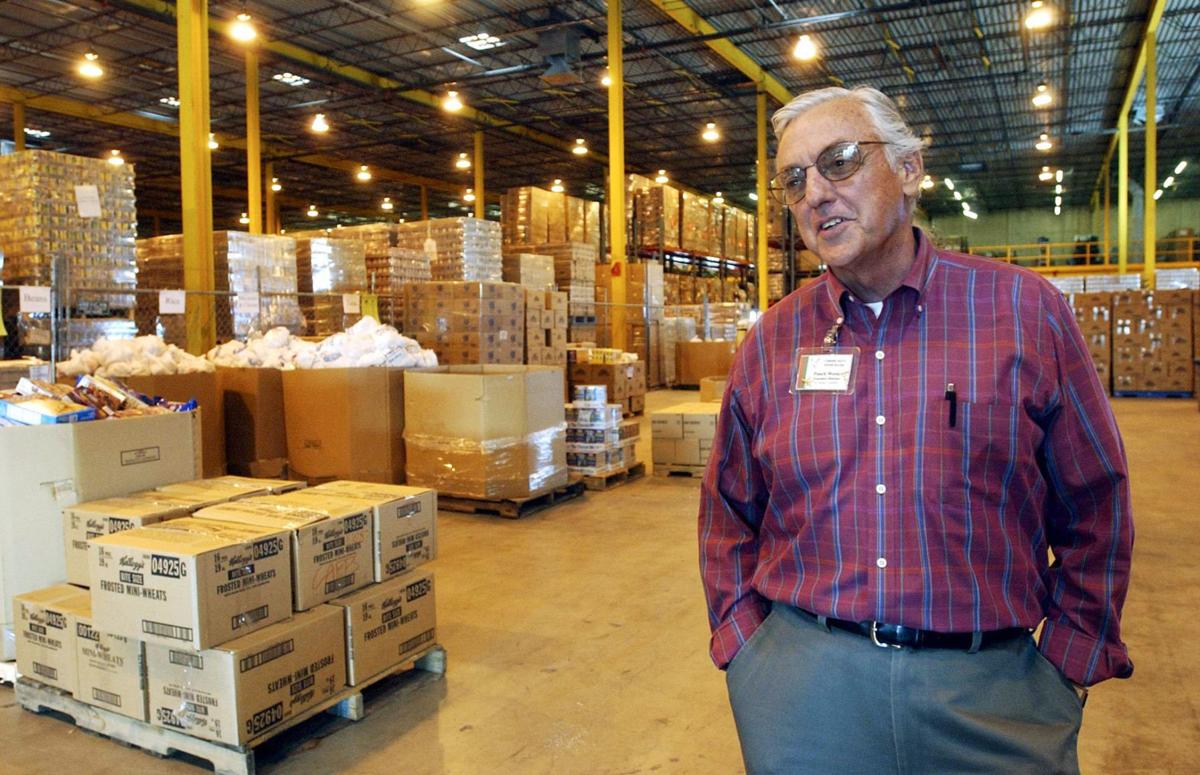Charles T. “Punch” Woods, former executive director of the Community Food Bank of Southern Arizona and a lifelong “fighter for justice,” died Wednesday morning after a horseback riding accident. He was 82.
Woods worked to resolve food insecurity by running the food bank for 25 years and by serving on the Feeding America Food Security Council, a national network of food banks. He retired from the food bank in 2003.
Michael McDonald, CEO of the food bank, said the nonprofit is recognized in the national food bank network because of the decades of work Woods dedicated to the organization and to working with other community members and leaders.
“All food banks do good, charitable work and feed people today,” McDonald said. “Not all food banks stand in solidarity to say ‘things have to change,’ and work on that change of the root causes of hunger and poverty.”
McDonald said Woods’ leadership inspired others across the country to work to end hunger, to fight against food injustice. He said people have reached out to him from across the U.S. since learning Woods died.
“He set the vision that ending hunger is about ending social and economic injustice, period,” McDonald said. “Even if you feed someone today, you gotta do that other work tomorrow.”
When Woods was hired to lead the food bank in 1978, less than 80,000 pounds of food were distributed annually through 16 partner agencies, according to Star archives. By 2002, when he announced his retirement, more than 13 million pounds of food were distributed through almost 400 community agencies.
“It’s been wonderful,” Woods told the Star in 2002. “It’s just been a joy to be part of an organization that the community cares so much about.”
In 1995, he led the Community Food Bank’s move from its 29,000-square-foot location on South Park Avenue just south of downtown to a 150,000-square-foot building at 3003 S. Country Club Road.
But Woods advocated for much more than the fight to end hunger, McDonald said.
“He was first and foremost a fighter for justice,” McDonald said.
Woods wanted to abolish the death penalty and spent a long time in Arizona advocating for that, though he wasn’t able to cause significant change here, McDonald said.
He also advocated for a more just immigration policy after raising his three daughters in Mexico while, as part of a faith community, he worked in social justice and with charities in Mexico, McDonald said.
“He had a great love for the borderlands region and for multiculturalism,” McDonald said. “He really treasured the foods and the music and the humor of many different cultures.”
McDonald said he’ll miss the way Woods’ smile always started with a twinkle in his eyes. He’ll miss Woods’ ponytail, his “beat up pickup truck with all the socialist bumper stickers one could ever imagine,” his easy laughter and his storytelling abilities.
He said he’ll also miss their 7 a.m. breakfast meet-ups at Micha’s and having a beer with Woods at Barrio Brewery.
“He always made time, he always reached out, and he’s done that for everyone,” McDonald said. “There’s so many people that have come through his and (wife) Casey’s life and homes over the years who needed a place to stay, needed a respite, needed to have someone listen to them and console them, comfort them and encourage them to go back out in the world reenergized and Punch and Casey always provided that home literally and spiritually for a bunch of people.”
McDonald laughed at the thought of Woods’ awkward hugs. McDonald said he’s a “hugger” but would always laugh when he went in for a hug and Woods deflected.
“That’s the irony is, he had such a warm, embracing spirit that you always felt hugged by his spirit,” he said. “But for whatever reason he struggled physically to hug someone.”
Former Tucson Mayor Bob Walkup, who served from 1999 to 2011, said Woods was always generous and compassionate to others and was somebody city leaders could go to who understood the needs of the community.
“In his work, he made life better for many people.” Walkup said. “We should be proud for the work that he gave to Tucson. We are a better place because Punch Woods was working for the people of Tucson.”
Walkup, who is 83, said when he learned Woods died from a horseback riding accident he was sad, but he was also sure Woods was enjoying life. “Punch was out doing what he liked,” he said. “And that’s the right way to go through life.”
Woods once told McDonald that as a kid he always dreamed of moving west and becoming a cowboy, McDonald recalled. “I think going out as a cowboy, living that childhood dream even at age 82, he probably shouldn’t have been on that damn horse, was perfect Punch. He went out living life to the fullest.”
Woods is survived by his wife of 59 years, Casey Woods, three adult daughters and four grandchildren.
Services are pending.





